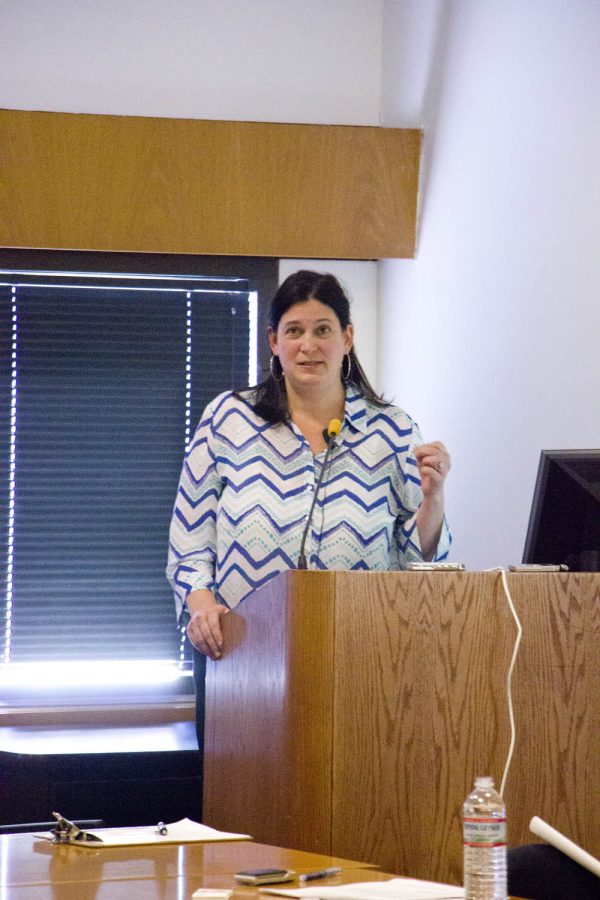On April 27 in the Quinn Administration Building, Dyan Mazurana, a political scholar of gender and children’s rights, presented her collected research from northern Uganda to the University of Massachusetts Boston community.
Mazurana, who has sold numerous books and articles, specializes in understanding the neglect toward women and children under the armed conflicts of authoritative regimes. She has continually served as an advisor for the United Nations and other national governmental organizations. She has done research in mostly developing nations like Afghanistan and Nepal, as well as northern Uganda, which was her most recent study.
Mazurana informed the audience of Uganda’s military coup, ruling over the country since its independence from Britain in 1986. Early attempts to threaten or stand against the regime have failed. The military coup only recruits men, thus forcing them to leave their families and stay loyal to the coup.
As the men go off to war, some never to be heard from again, women and children are left behind to pick up the pieces. Under a violent regime, with militiamen patrolling villages day and night, women and children are constantly under serious threat.
Usually, those who acknowledge this ask the question, “Well, why not still resist?” Mazurana’s answer to that question is this: “…what victims are mostly concerned about is making it into the next morning.”
Women and children are the most targeted victims of sexual violence. Women and girls—some as young as twelve years old—are constantly hospitalized for unplanned pregnancies. The Ugandan government cannot form an effective political campaign against the perpetrators; it could provoke further violence.
U.S. intervention is in constant question. While some argue that intervening violates sovereignty and security, others argue that a moral obligation is justified in action.
Mazurana proposes growing acknowledgment of victims on behalf of the international community. Her proposal falls under two categories: remedy and reparation.
Remedy, as Mazurana explained, is the support given to victims, who under international law have the right to justice, adequate psychological and physical care, and access to relevant information pertaining to victims and their families.
Reparation proposes the attempt to compensate the pain that victims have suffered. In most cases, “…you don’t see an outpouring support for victims,” said Mazurana. Once one becomes a victim of any violence, they become isolated.
According to researched statistics, female victims of rape in Uganda hardly come forward. But when they do, they want simple recognition for their suffering.
Mazurana shared a story from her experience in Uganda when she spoke to a woman whose lips were lacerated from her face: “…and she [implied], “I want people to know that what was done to me was wrong.”





















































